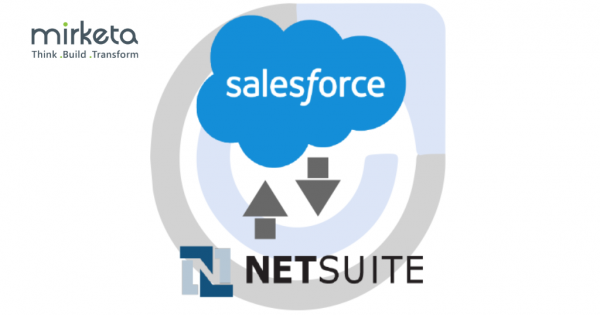As businesses grow and expand, it’s not uncommon for them to use multiple software applications to manage different aspects of their operations. For example, a company might use NetSuite for accounting and ERP purposes, and Salesforce for managing their sales and customer relationship management (CRM). However, having data siloed across different applications can create inefficiencies and make it difficult to get a holistic view of the business. This is where integration between NetSuite and Salesforce can be incredibly valuable.
NetSuite and Salesforce are two of the most popular cloud-based business applications in use today. NetSuite provides ERP, financial, and accounting functionality, while Salesforce offers CRM and sales management capabilities. By integrating these two applications, businesses can create a unified platform that streamlines processes and provides a single source of truth for data.
Understanding NetSuite and Salesforce:
NetSuite, a cloud-based enterprise resource planning (ERP) platform, provides businesses with a comprehensive suite of tools for managing financials, supply chain, inventory, and other critical processes. Salesforce, on the other hand, is a leading customer relationship management (CRM) platform that enables organizations to manage sales, marketing, customer service, and support operations efficiently.

Why Integrate NetSuite and Salesforce?
There are several benefits to integrating NetSuite and Salesforce, including:
- Improved Visibility: Integrating NetSuite and Salesforce provides businesses with a comprehensive view of their operations. This makes it easier to track sales, customer interactions, financials, inventory, and other critical data points.
- Increased Efficiency: With an integrated system, businesses can automate processes, reducing manual data entry and minimizing errors. This frees up time and resources for more value-added tasks.
- Better Collaboration: Integrated systems make it easier for teams to work together. Sales reps can access inventory and pricing data from NetSuite within Salesforce while accounting and finance teams can see sales data in NetSuite. This helps teams make more informed decisions and work more efficiently.
- Enhanced Customer Experience: By integrating NetSuite and Salesforce, businesses can deliver a more personalized and streamlined experience to their customers. Sales reps can access customer data, including order history and preferences, from within Salesforce, making it easier to provide tailored recommendations and support.
How to Integrate NetSuite and Salesforce?
Integrating NetSuite and Salesforce requires careful planning and execution. Here are some key steps to follow:
- Define Integration Requirements: Identify the data points that need to be shared between the two systems. This might include customer data, sales orders, invoices, inventory levels, and financial data.
- Choose Integration Method: There are several methods to integrate NetSuite and Salesforce, including pre-built connectors, middleware platforms, and custom development. Choose the method that best meets your business needs and budget.
- Configure Integration: Once the integration method is selected, configure the integration by mapping the data fields between the two systems. This ensures that data is transferred accurately and efficiently.
- Test Integration: Test the integration thoroughly to ensure that data is flowing correctly between the two systems. This includes testing data transfers, automation, and workflows.
- Monitor and Maintain: Once the integration is live, monitor it regularly to ensure that it is functioning properly. Make updates and adjustments as needed to maintain the integrity of the integration.
Mirketa specializes in providing integration solutions between the two platforms NetSuite and Salesforce. Here are some key points on how Mirketa can help and the achievements they have made:
- Expertise in Integration: Mirketa has a team of experienced professionals who possess in-depth knowledge of both NetSuite and Salesforce platforms. They understand the intricacies of the integration process and can tailor the solution to meet specific business requirements.
- Customized Solutions: Mirketa understands that every business has unique needs and workflows. They offer customized integration solutions that align with the specific requirements of each client. This tailored approach ensures a smooth integration process and maximizes the value derived from both platforms.
- Scalability and Flexibility: Mirketa’s integration solutions are designed to scale with the growth of a business. They ensure that the integration remains robust and can handle increased data volumes and complexities as the organization expands. Additionally, Mirketa’s solutions are flexible, allowing for future customization and modifications as business needs evolve.
- Proven Track Record: Mirketa has a successful track record of implementing NetSuite Salesforce integration for numerous clients across various industries. Their expertise and experience in delivering seamless integrations have helped clients achieve significant improvements in operational efficiency, customer satisfaction, and overall business performance.
Integrating NetSuite and Salesforce provides businesses with a comprehensive unified platform that streamlines processes, increases efficiency, and improves collaboration. Mirketa, a digital transformation boutique consulting company with experienced consultants both on Netsuite and Salesforce technologies can help organizations successfully integrate these two critical business applications, hence, unlocking new levels of insights and optimization.
Leave A Comment